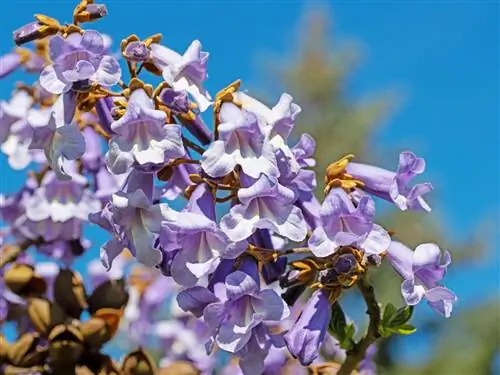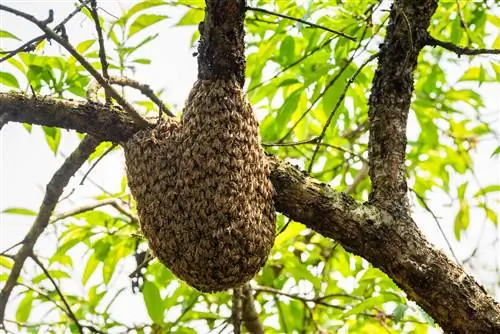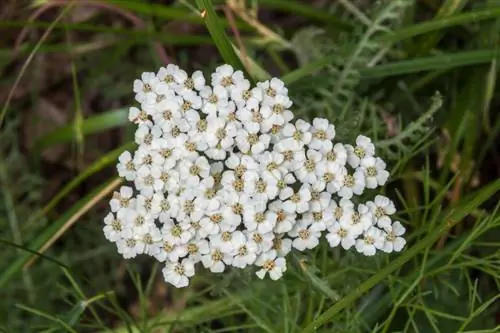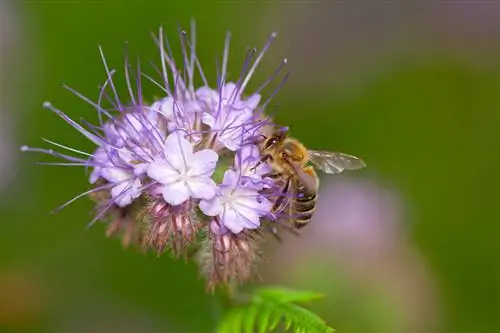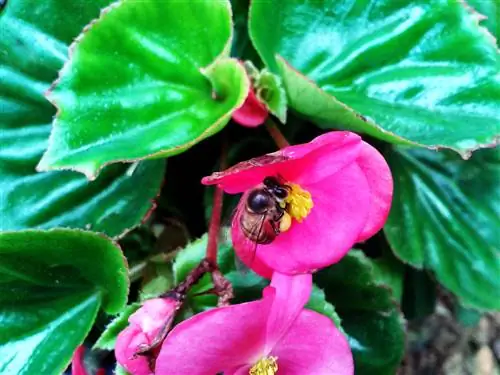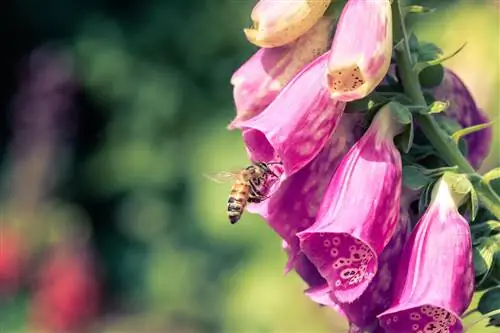- Author admin leonars@hobbygardeners.com.
- Public 2023-12-16 16:46.
- Last modified 2025-01-23 11:22.
Paulownia tomentosa is very popular with garden and plant lovers due to its magical flowers and impressive leaves. But is the bluebell tree also useful for bees? We will look at this question in more detail below.
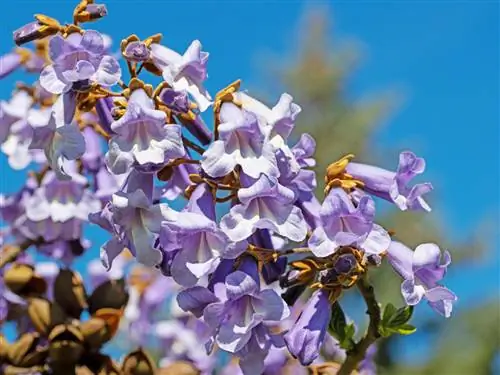
Is the bluebell tree bee-friendly?
The bluebell tree is consideredbee-friendly. It provides honey-making insects with both nectar and pollen, although only in moderate quantities. The light scent that the magnificent flowers exude attracts various types of bees.
What benefits does the bluebell tree have for bees?
Bees can obtainnectar and pollen from the beautiful, usually blue to blue-violet flowers of the bluebell tree. They need both to survive:
- Adult bees use nectar primarily as food for themselves. It gives them the energy they need to fly, for heat production and generally for their bodily functions.
- Pollen is a particularly protein-rich food. Bees, especially honey bees, provide this for their brood.
How much nectar and pollen does the bluebell tree provide to bees?
The amount of nectar that the bluebell tree provides to bees is rated as moderate to good. There are also small amounts of pollen. From this it can be concluded that the plant, also known as the emperor tree, imperial paulownia or kiri tree, is definitely bee-friendly, butis in no way suitable as sole bee pasture. Add additional trees that provide more nectar and pollen for bees.
Tip
Why the bluebell tree is also called a climate tree
The bluebell tree is one of the fastest growing trees on earth. In 20 years it binds around 46 times as much CO2 as a German oak tree. In addition, Paulownia tomentosa is extremely drought-tolerant and insensitive to pests. For all of these reasons, the tree is also called a climate tree. The bluebell tree not only helps bees, but also the entire climate.

